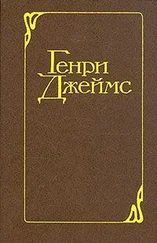Генри Джеймс - Notes of a Son and Brother
Здесь есть возможность читать онлайн «Генри Джеймс - Notes of a Son and Brother» — ознакомительный отрывок электронной книги совершенно бесплатно, а после прочтения отрывка купить полную версию. В некоторых случаях можно слушать аудио, скачать через торрент в формате fb2 и присутствует краткое содержание. Жанр: foreign_prose, foreign_antique, на английском языке. Описание произведения, (предисловие) а так же отзывы посетителей доступны на портале библиотеки ЛибКат.
- Название:Notes of a Son and Brother
- Автор:
- Жанр:
- Год:неизвестен
- ISBN:нет данных
- Рейтинг книги:4 / 5. Голосов: 1
-
Избранное:Добавить в избранное
- Отзывы:
-
Ваша оценка:
- 80
- 1
- 2
- 3
- 4
- 5
Notes of a Son and Brother: краткое содержание, описание и аннотация
Предлагаем к чтению аннотацию, описание, краткое содержание или предисловие (зависит от того, что написал сам автор книги «Notes of a Son and Brother»). Если вы не нашли необходимую информацию о книге — напишите в комментариях, мы постараемся отыскать её.
Notes of a Son and Brother — читать онлайн ознакомительный отрывок
Ниже представлен текст книги, разбитый по страницам. Система сохранения места последней прочитанной страницы, позволяет с удобством читать онлайн бесплатно книгу «Notes of a Son and Brother», без необходимости каждый раз заново искать на чём Вы остановились. Поставьте закладку, и сможете в любой момент перейти на страницу, на которой закончили чтение.
Интервал:
Закладка:
III
I have before me another communication of about the same moment, a letter addressed to his father in Paris within that month; from which, in spite of its lively interest as I hold, I cull nothing—and precisely because of that interest, which prescribes for it a later appearance in conditions in which it may be given entire. William is from this season on, to my sense, so livingly and admirably reflected in his letters, which were happily through much of his career both numerous and highly characteristic, that I feel them particularly plead, in those cases in which they most testify to his personal history, for the separate gathered presentation that happily awaits them. There best may figure the serious and reasoned reply drawn from him by some assuredly characteristic enough communication of our parent's own in respect to his declared preference for a painter's life over any other. Lost is this original and, in the light of later matters, sufficiently quaint declaration, and lost the paternal protest answered by my brother from Bonn and anything but infelicitous, on its side, so far as the truer apprehension went, under the showing of the time to come. The only thing was that our father had a wonderful way of being essentially right without being practically or, as it were, vulgarly, determinant, and that this relegation of his grounds of contention to the sphere of the non-immediate, the but indirectly urgent, from the point of view of the thing really to do , couldn't but often cause impatience in young breasts conscious of gifts or desires or ideals of which the very sign and warrant, the truth they were known by, was that they were susceptible of application. It was in no world of close application that our wondrous parent moved, and his indifference at the first blush to the manifestation of special and marketable talents and faculties, restlessly outward purposes of whatever would-be "successful" sort, was apt to be surpassable only by his delight subsequently taken in our attested and visible results, the very fruits of application; as to which the possibility, perhaps even the virtual guarantee, hadn't so much left him cold in advance as made him adversely and "spiritually" hot. The sense of that word was the most living thing in the world for him—to the point that the spiritual simply meant to him the practical and the successful, so far as he could get into touch with such denominations, or so far, that is, as he could face them or care for them a priori . Fortunately, as he had observational powers of the happiest, perceptions—perceptions of character and value, perceptions of relation and effect, perceptions in short of the whole—turned to the ground sensibly beneath our feet, as well as a splendid, an extraordinarily animated and, so far as he himself at least was concerned, guiding and governing soul, justice and generosity always eventually played up, the case worked itself happily out, and before we knew it he had found it quite the rightest of all cases, while we on our side had had the liveliest, and certainly the most amusing and civilising, moral or, as he would have insisted, spiritual recreation by the way.
My brother challenges him, with a beautiful deference, on the imputed damage to what might be best in a man by the professional pursuit of "art"—which he appears to have set forth with characteristic emphasis; and I take the example for probably one of the rarest in all the so copious annals of parental opposition to the æsthetic as distinguished from some other more respectable course. What was marked in our father's prime uneasiness in presence of any particular form of success we might, according to our lights as then glimmering, propose to invoke was that it bravely, or with such inward assurance, dispensed with any suggestion of an alternative. What we were to do instead was just to be something, something unconnected with specific doing, something free and uncommitted, something finer in short than being that , whatever it was, might consist of. The "career of art" has again and again been deprecated and denounced, on the lips of anxiety or authority, as a departure from the career of business, of industry and respectability, the so-called regular life, but it was perhaps never elsewhere to know dissuasion on the very ground of its failing to uplift the spirit in the ways it most pretends to. I must in fairness add, however, that if the uneasiness I here refer to continued, and quite by exception as compared with the development of other like episodes, during the whole of my brother's fortunately but little prolonged studio season, it was really because more alternatives swarmed before our parent's eyes, in the cause, than he could bring himself to simplify it by naming. He apprehended ever so deeply and tenderly his eldest son's other genius—as to which he was to be so justified; though this indeed was not to alter the fact that when afterwards that subject went in, by a wondrous reaction, for the pursuit of science, first of chemistry and then of anatomy and physiology and medicine, with psychology and philosophy at last piling up the record, the rich malaise at every turn characteristically betrayed itself, each of these surrenders being, by the measure of them in the parental imagination, so comparatively narrowing. That was the nearest approach to any plea for some other application of the spirit—that they were narrowing. When I myself, later on, began to "write" it was breathed upon me with the finest bewildering eloquence, with a power of suggestion in truth which I fairly now count it a gain to have felt play over me, that this too was narrowing. On the subsequent history of which high paradox no better comment could occur to me than my find of a passage in a letter long subsequently addressed to Mr. James T. Fields, then proprietor and editor of the Atlantic Monthly magazine—a letter under date of May 1868 and referring clearly to some published remarks on a certain young writer which did violence to the blessedly quick paternal prejudice.
I had no sooner left your sanctum yesterday than I was afflicted to remember how I had profaned it by my unmeasured talk about poor H. Please forget it utterly. I don't know how it is with better men, but the parental sentiment is so fiendish a thing with me that if anyone attempt to slay my young, especially in a clandestine way, or out of a pious regard ( e.g .) to the welfare of the souls comprised in the diocese of the Atlantic, I can't help devoting him bag and baggage to the infernal gods. I am not aware of my animus until I catch, as yesterday, a courteous ear; then the unholy fire flames forth at such a rate as to leave me no doubt on reflection where it was originally lighted.
Almost all my dear father is there, making the faded page to-day inexpressibly touching to me; his passionate tenderness, his infinite capacity for reaction on reaction, a force in him fruitful in so many more directions than any high smoothness of parti-pris could be, and his beautiful fresh individual utterance, always so stamped with the very whole of him. The few lines make for me, after all the years, a sort of silver key, so exquisitely fitting, to the treasure of living intercourse, of a domestic air quickened and infinitely coloured, comprised in all our younger time. The renewed sense of which, however, has carried me for the moment too far from the straighter line of my narrative.
The author of the young letter of which I have deferred presentation met in Paris, shortly after that date, the other party to the discussion; and the impression of the endless day of our journey, my elder and my younger brothers' and mine, from Bonn to that city, has scarcely faded from me. The railway service was so little then what it has become that I even marvel at our having made our connections between our early rise in the Bonn-Gasse and our midnight tumble into bed at the Hôtel des Trois Empereurs in the Place du Palais Royal; a still-felt rapture, a revelation of the Parisian idea of bed after the rude German conception, our sore discipline for so many weeks. I remember Cologne and its cathedral almost in the bland dawn, and our fresh start thence for Strasbourg, now clearly recognised, alas, as a start back to America, to which it had been of a sudden settled that we were, still with a fine inconsequence, to return. We had seen Cologne cathedral by excursion from Bonn, but we saw Strasbourg, to my sorrow until a far later occasion soothed it, only as a mild monster behind bars, that is above chimneys, housetops and fortifications; a loss not made up to me by other impressions or particulars, vivid and significant as I found myself none the less supposing several of these. Those were the September days in which French society, so far as it was of the Empire at least, moved more or less in its mass upon Homburg and Baden-Baden; and we met it in expressive samples, and in advance and retreat, during our incessant stops, those long-time old stops, unknown to the modern age, when everyone appeared to alight and walk about with the animation of prisoners suddenly pardoned, and ask for conveniences, and clamour for food, and get mixed with the always apparently still dustier people of opposite trains drawn up for the same purposes. We appeared to be concerned with none but first-class carriages, as an effect of which our own was partly occupied, the livelong day, by the gens of a noble French house as to which we thus had frequent revelations—a pair of footmen and a lady's maid, types of servile impudence taking its ease, who chattered by the hour for our wonderstruck ears, treating them to their first echo of the strange underworld, the sustaining vulgarity, of existences classified as "great." They opened vistas, and I remember how when, much later, I came to consider the designed picture, first in Edmond About and then in Alphonse Daudet, of fifty features symptomatic of the social pace at which the glittering régime hurried to its end, there came back to me the breath of this sidewind of the frenzied dance that we had caught during those numerous and so far from edifying hours in our fine old deep-seated compartment. The impression, I now at any rate perfectly recover, was one that could feed full enough any optimism of the appointedly modest condition. It was true that Madame la Marquise, who was young and good-natured and pretty without beauty, and unmistakably "great," exhaling from afar, as I encouraged myself to imagine, the scented air of the Tuileries, came on occasion and looked in on us and smiled, and even pouted, through her elegant patience; so that she at least, I recollect, caused to swim before me somehow such a view of happy privilege at the highest pitch as made me sigh the more sharply, even if the less professedly, for our turning our backs on the complex order, the European, fresh to me still, in which contrasts flared and flourished and through which discrimination could unexhaustedly riot—pointing so many more morals, withal, if that was the benefit it was supposed to be, than we should find pretexts for "on the other side." We were to fall as soon as we were at home again to reading the Revue des Deux Mondes—though doubtless again I should speak here, with any emphasis, but for myself; my chin, in Europe, had scarce risen to the level of that publication; but at Newport in Rhode Island, our next following place of sojourn, I speedily shot up so as quite to bend down to it: it took its place therewith as the very headspring of culture, a mainstay in exile, and as opening wide in especial the doors of that fictive portrayal of a society which put a price, for the brooding young reader, on cases, on cadres , in the Revue parlance, already constituted and propitiously lighted. Then it was that the special tension of the dragged-out day from Cologne to Paris proved, on the absurdest scale, a preparation, justified itself as a vivid point of reference: I was to know what the high periodical meant when I encountered in its études de mœurs the blue-chinned corruptible, not to say corrupt, larbin and the smart soubrette; it was above all a blessing to feel myself, in the perusal of M. Octave Feuillet, an education, as I supposed, of the taste, not at a marked disadvantage; since who but the Petite Comtesse herself had swung her crinoline in and out of my prospect, or, to put it better, of my preserved past, on one of my occasions of acutest receptivity?
Читать дальшеИнтервал:
Закладка:
Похожие книги на «Notes of a Son and Brother»
Представляем Вашему вниманию похожие книги на «Notes of a Son and Brother» списком для выбора. Мы отобрали схожую по названию и смыслу литературу в надежде предоставить читателям больше вариантов отыскать новые, интересные, ещё непрочитанные произведения.
Обсуждение, отзывы о книге «Notes of a Son and Brother» и просто собственные мнения читателей. Оставьте ваши комментарии, напишите, что Вы думаете о произведении, его смысле или главных героях. Укажите что конкретно понравилось, а что нет, и почему Вы так считаете.












